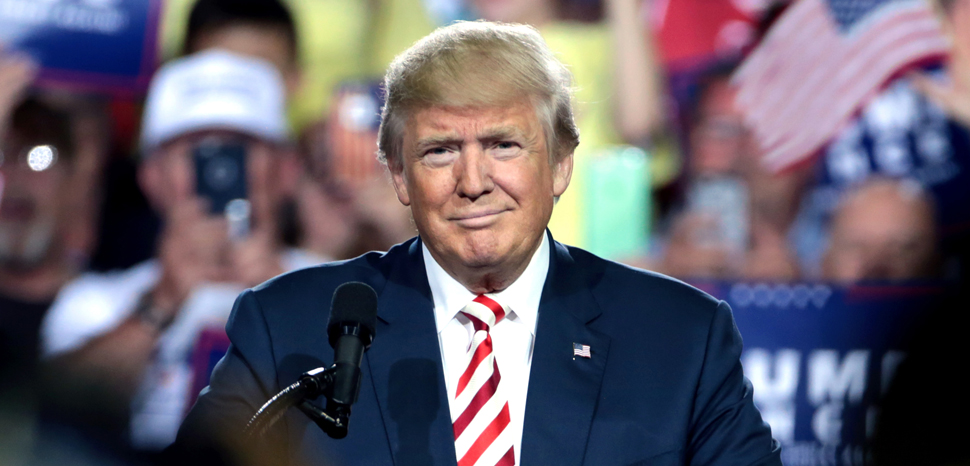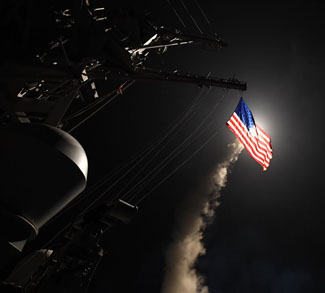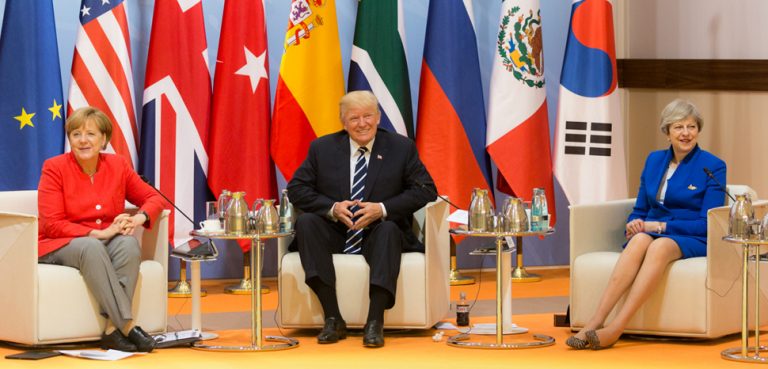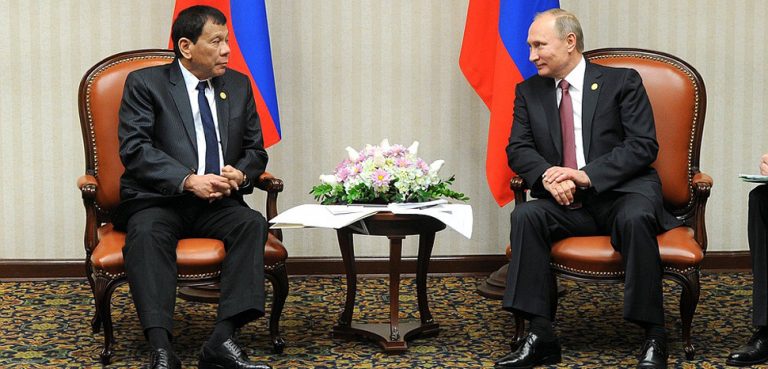As news of yet another Russian transgression against Ukraine emerges, it’s becoming increasingly evident that Vladimir Putin is aggressively pursuing his political agenda at home and abroad –without worrying about reprisals from the Trump administration.
On 25 November, Russian forces attacked a trio of Ukrainian navy ships attempting to navigate the Kerch Strait between the Russian mainland and Russian-occupied Crimea and seized 23 crew members, some of whom were injured in the process. Four days later, according to Ukraine’s infrastructure minister, Russian forces were effectively blocking all Ukrainian ports on the Sea of Azov, only allowing Russian vessels through the Kerch Strait.
The sharp escalation in regional tensions – part of a wider campaign by Putin to boost his popularity at home while destabilising Ukraine in the run-up to its presidential elections – has received a muted response from influential Western leaders, particularly Trump, who only cancelled their scheduled meeting at the upcoming G20 summit while already in the air to Argentina.
No fear of reprisals
The lacklustre international response begs the question of how far Putin can push the political boundaries without consequences. President Trump, in particular, has played down the skirmish in a series of mealy-mouthed statements that are only likely to embolden his strongman counterpart in Moscow.
European leaders have openly flagged their concern about Russia’s intervention – leading Merkel ally and Christian Democratic Union member Norbert Roettgen, for example, suggested that the EU might need to ratchet up sanctions against Russia in response to the provocation. Yet the only real condemnation from the US administration came from outgoing Ambassador to the United Nations Nikki Haley, who labelled the Russian move as ‘outlaw’ but nevertheless appeared to rule out a more practical US response.
Meanwhile, President Trump waited a day after the Ukrainian ships were seized before commenting that he was ‘not happy’ about the situation, notably stopping short of blaming Russia for the confrontation. Given Trump’s propensity for dispensing swift and merciless diatribes against his perceived enemies, Moscow was undoubtedly reassured by his measured response.
Putting commerce before morality
Trump’s vague language on Russia echoed his dissimulation in response to Saudi Arabia’s growing laundry list of human rights abuses, particularly its brazen murder of dissident journalist Jamal Khashoggi – and fits into a wider pattern of Trump and his administration bending over backwards to forgive his allies any sins, no matter how egregious.
Of course, previous US administrations have been willing to overlook human rights abuses in the face of compelling strategic interests—including the Obama administration’s history of providing direct military support to Saudi Arabia in Yemen. Trump, however, hasn’t equivocated in placing US strategic and commercial partnerships front and centerwhen it comes to diplomatic relationships, regardless of the human cost.
Hence the US president sees no impediment to describing Saudi Arabia as a ‘spectacular ally,’ despite the CIA concluding that Saudi Crown Prince Mohammed bin Salman (MBS) was responsible for ordering Khashoggi’s death last month. Indeed, Trump has willingly turned a blind eye to the scheming, claiming that the Crown Prince may or may not have had knowledge of the killing – the implication being that it doesn’t really matter either way as the president won’t allow an incident such as this to distract him from pursuing his ‘America First’ agenda.
No quarter for America’s foes
This policy contrasts sharply with the approach America is taking toward countries it doesn’t consider ‘useful.’ Washington has repeatedly ratcheted up sanctions on Caracas, earlier this month slapping restrictions on the Venezuelan gold sector, one of the country’s last robust industries. The US is now contemplating significantly heightening the sanctions by adding Venezuela to the list of state sponsors of terrorism– not because the US genuinely believes Venezuela is sponsoring terrorism, but as a way to pressure a regime it doesn’t support.
If successful, Venezuela would join a list that includes North Korea, Sudan and Syria, at the behest of a group of GOP legislators, including Marco Rubio, who can see an opportunity to further undermine Nicolás Maduro’s government. The Republican lawmakers seeking to censure Venezuela have alleged that its government has links to Lebanese Hezbollah and Colombian guerrilla groups such as the Revolutionary Armed Forces of Colombia (FARC), but some experts believe evidence of these alleged associations is thin on the ground.
Sadly, the biggest impact of including Venezuela on the terrorist sponsorship list would likely be felt by the country’s most vulnerable citizens. That is, by those already struggling with food and medicine shortages, rampant hyperinflation (predicted to reach one million percent by the end of the year), and escalating crime which are pushing the country to the brink of socioeconomic collapse. And counteractively, increasing the pressure on Caracas may even strengthen Maduro’s position as he blames Venezuela’s woes on imperialist America.
Damaging allies and opponents alike
In a parallel move, Trump turned his back on European allies earlier this year by scuttling the Iran deal and reinstating sanctions on the “rogue regime.” Yet the move is expected to have few, if any, positive consequences, serving instead to stoke anti-American sentiment in Tehran and providing a catalyst to the development of financial mechanisms cutting out the United States.
Indeed, Trump’s unilateral use of sanctions against Tehran may yet spectacularly backfire as Europe, Russia, and China move to redefine the global financial system, excising the dollar – together with US dominance – from its core. European diplomats are already developing an alternative payment system designed to bypass US sanctions against Iran; it’s likely that China, India, Russia, Turkey and Iraq will take a stand against the new sanctions, too.
Taken together, it’s a worrying picture: Trump isn’t willing to take a stand against gross human rights abuses, but he will mindlessly pursue vendettas against governments he wants to topple. Effective diplomacy isn’t about personal preferences, but Trump nevertheless allows his own likes and dislikes to dictate his actions, ignoring wrongdoings on one hand and positing conspiracy theories to delegitimize his opponents on the other. In doing this, the president, ironically, compromises the same American values he has pledged to protect.
The opinions, beliefs, and viewpoints expressed by the authors are theirs alone and don’t reflect the official position of Geopoliticalmonitor.com or any other institution.




